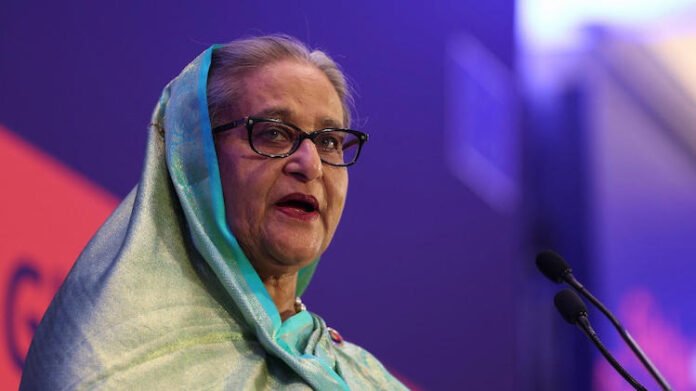India has reportedly urged the United States to ease its stance on Bangladesh’s Prime Minister Sheikh Hasina before she resigned from her position and fled the country. The developments, which have sent shockwaves through South Asia’s political landscape, mark a significant shift in the region’s dynamics and raise questions about the future of Bangladesh’s governance and its relationship with key global powers.
Sheikh Hasina, who has been at the helm of Bangladesh’s government for over a decade, has been a crucial ally of India in maintaining stability and promoting economic growth in the region. Her leadership has been characterized by a strong stance against extremism, significant economic development, and a commitment to secularism. However, her tenure has also been marred by accusations of authoritarianism, suppression of dissent, and the controversial handling of elections, which critics argue undermined the democratic process in Bangladesh.
The United States, which has been increasingly critical of Hasina’s government, had been exerting pressure on Bangladesh regarding human rights violations, the curbing of free speech, and the lack of credible elections. Washington’s concerns had grown to the point where it was considering sanctions or other punitive measures, which could have further destabilized the region. India, recognizing the potential fallout from such actions, reportedly intervened, urging the U.S. to take a more measured approach.
According to sources close to the Indian government, New Delhi’s request was driven by a desire to avoid a scenario where the sudden destabilization of Bangladesh could lead to widespread unrest or a power vacuum that extremist groups might exploit. India, which shares a long and porous border with Bangladesh, has always been keenly aware of the potential security risks posed by instability in its neighbor. The Indian government is believed to have emphasized the importance of a stable transition of power in Bangladesh, one that would not jeopardize the gains made under Hasina’s administration.
Despite these diplomatic efforts, Sheikh Hasina’s decision to step down and leave the country came as a surprise to many. The reasons behind her abrupt departure remain unclear, but speculation is rife that mounting internal and external pressures played a crucial role. Hasina’s resignation has left Bangladesh in a state of uncertainty, with the political opposition, led by the Bangladesh Nationalist Party (BNP), calling for immediate elections and the establishment of a caretaker government.
The situation in Bangladesh is now highly fluid. With Hasina out of the picture, there are fears of political chaos and possible violence as various factions vie for power. The sudden leadership vacuum has also raised concerns about the future of Bangladesh’s economy, which has been one of the fastest-growing in Asia under Hasina’s tenure. Investors and international partners are watching closely to see how the situation unfolds, with many worried about the potential for economic disruption.
India’s role in the unfolding drama is particularly noteworthy. As Bangladesh’s closest neighbor and a regional power, India’s influence in Dhaka has been substantial. Under Hasina, India-Bangladesh relations have flourished, with both countries cooperating on security, trade, and infrastructure projects. New Delhi’s plea to the U.S. to go easy on Hasina underscores India’s concern about maintaining these positive relations and avoiding a situation where anti-Indian sentiment could gain traction in Bangladesh.
However, with Hasina no longer in power, India now faces the challenge of recalibrating its approach to Bangladesh. The possibility of a government less friendly to India coming to power is a real concern for New Delhi, especially if such a government aligns more closely with China or other rivals in the region. India will likely need to engage in active diplomacy to ensure that its strategic interests in Bangladesh are safeguarded, regardless of who leads the country next.
For the United States, the departure of Sheikh Hasina presents both challenges and opportunities. On one hand, it opens the door for Washington to support democratic reforms and improve human rights in Bangladesh. On the other hand, the U.S. will need to tread carefully to avoid creating instability in a country that is strategically important in the region.
In addition, India’s request to the U.S. to ease pressure on Sheikh Hasina before her resignation and flight from Bangladesh highlights the complex and often delicate nature of international relations in South Asia. As Bangladesh enters a new and uncertain phase, the actions of regional and global powers will be crucial in shaping its future. The world will be watching closely as the situation in Bangladesh continues to evolve, with far-reaching implications for the region’s stability and security.

